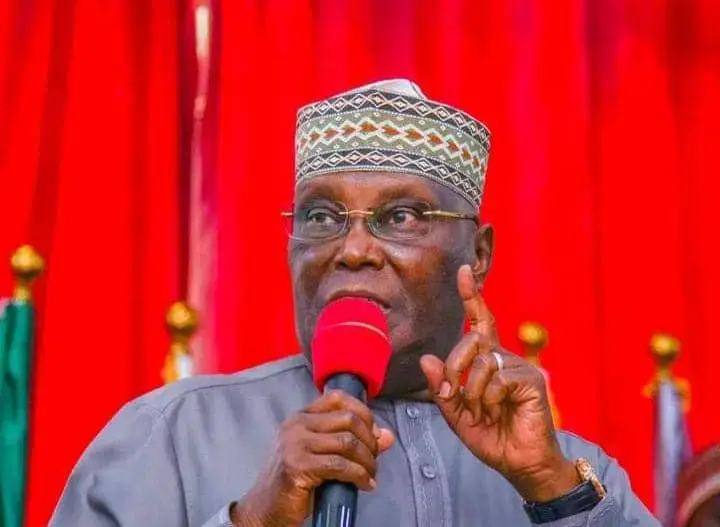The Socio-Economic Rights and Accountability Project (SERAP) has called on President Bola Tinubu to suspend monthly federal allocations to states that do not conduct credible local government elections.
In a letter dated October 5, 2024, and signed by Deputy Director Kolawole Oluwadare, SERAP specifically requested that President Tinubu instruct the Minister of Finance and Coordinating Minister of the Economy, Olawale Edun, to immediately withhold federal allocations from any state that has failed or refused to hold local council polls.
The organization also urged the Finance Minister to ensure that any allocations from the Federation Account are disbursed solely to democratically elected local government councils, excluding all other entities.
SERAP further requested the Minister to provide a detailed account of local government councils that have directly received federal allocations, confirming whether these councils were democratically elected, as stipulated by the amended Nigerian Constitution of 1999 and mandated by the Supreme Court’s ruling on July 11, 2024.
Additionally, SERAP urged President Tinubu to promptly enlist the Independent Corrupt Practices and Other Related Offences Commission (ICPC) and the Economic and Financial Crimes Commission (EFCC) to collaboratively monitor the expenditure of FAAC allocations by democratically elected local government councils nationwide.
The organization emphasized that “Your government has the responsibility to uphold the Nigerian Constitution and prevent public wrongs committed by state governors.”
SERAP asserted that “A democratically elected local government council should not exist at the discretion or whims of governors or their political benefactors.”
According to SERAP, “Your administration also has a constitutional duty to ensure accountability in the utilization of federal allocations and to comply immediately with the Supreme Court’s judgment and the principles of the rule of law.”
The letter noted, “Local government councils are entitled to direct payments from the Federation Account to foster good governance, enhance citizens’ welfare, and promote development in local government areas across the country.”
“Where the rule of law prevails, political expediency should be sacrificed to uphold the rule of law, ensuring the continued existence of institutions that promote social values, liberty, and orderly development.”
SERAP expressed gratitude for the implementation of the suggested measures within seven days of receiving or publishing this letter. Should there be no response, SERAP will consider appropriate legal actions to compel compliance with their request in the public interest.
“It is entirely consistent with the rule of law to promptly withhold federal allocations from states that have failed or refused to conduct local government elections and ensure that any allocations from the Federation Account are directed exclusively to democratically elected councils.”
As indicated in SERAP’s information, the Supreme Court of Nigeria recently mandated the Federal Government to directly pay funds from the Federation Account only to democratically elected local government councils and no other organizations.
The court also instructed the 36 state governors to “ensure democratic governance at the local government level.”
The ruling clarified that state governors lack the authority to dissolve democratically elected local government councils and replace them with caretaker committees, accompanied by an order for immediate compliance with the judgment.
SERAP highlighted concerns raised by Prof. Mahmood Yakubu, Chairman of the Independent National Electoral Commission (INEC), who stated that “local government elections in virtually all states have become mere coronations of candidates from the ruling parties. It is time to halt these coronations and conduct proper elections.”
The organization expressed apprehension over the manipulation of local government elections by governors and other actors in several states.
SERAP noted the failure of numerous state governors to organize local government council elections, contrary to Section 7(1) of the Nigerian Constitution.
Furthermore, SERAP raised concerns regarding allegations of corruption and mismanagement involving governors in the handling of federal allocations intended for local government councils. It has been reported that trillions of naira in FAAC allocations received by Nigeria’s 36 states have allegedly been misappropriated.
The resulting human costs pose a direct threat to the rights of socially and economically vulnerable Nigerians.
Despite increased allocations from FAAC, millions of residents in various states continue to endure extreme poverty and lack access to essential public goods and services.
The Federal Government’s removal of the petrol subsidy and the floating of the naira have resulted in higher FAAC allocations to states and the Federal Capital Territory (FCT). However, this increase has not led to any significant improvement in the security and welfare of millions of Nigerians.
SERAP reminded that Section 162(3)(5) of the Nigerian Constitution mandates that funds allocated to local government councils from the Federation Account should be distributed directly to them.
State governors possess no authority to retain, manage, or disburse federal allocations intended for local government councils.
Under the terms of the Supreme Court ruling, the 36 state governors are prohibited from collecting, receiving, spending, or interfering with local government council funds from the Federation Account for their benefit.
SERAP pointed out that Section 165 of the Nigerian Constitution and the Allocation of Revenue Act No.1 of 1982 stipulate that government-generated revenues should be credited to the Federation Account and distributed monthly among the federal government, states, and local governments.
Moreover, former President Muhammadu Buhari, in December 2022, remarked that “If the money from the Federation Account to the State is about N100 million, N50 million will be sent to the chairman, but he will sign for N100 million. The chairman will pocket the remainder and distribute it as he chooses.”
The 36 states in Nigeria and the Federal Capital Territory, Abuja, have reportedly received over N40 trillion in federal allocations intended for the 774 local government areas across the country.
In November 2023 alone, the Federation Account Allocation Committee (FAAC) distributed N225.21 billion in federal allocations designated for local governments, while in December 2023, states received N258.81 billion intended for local government areas.











